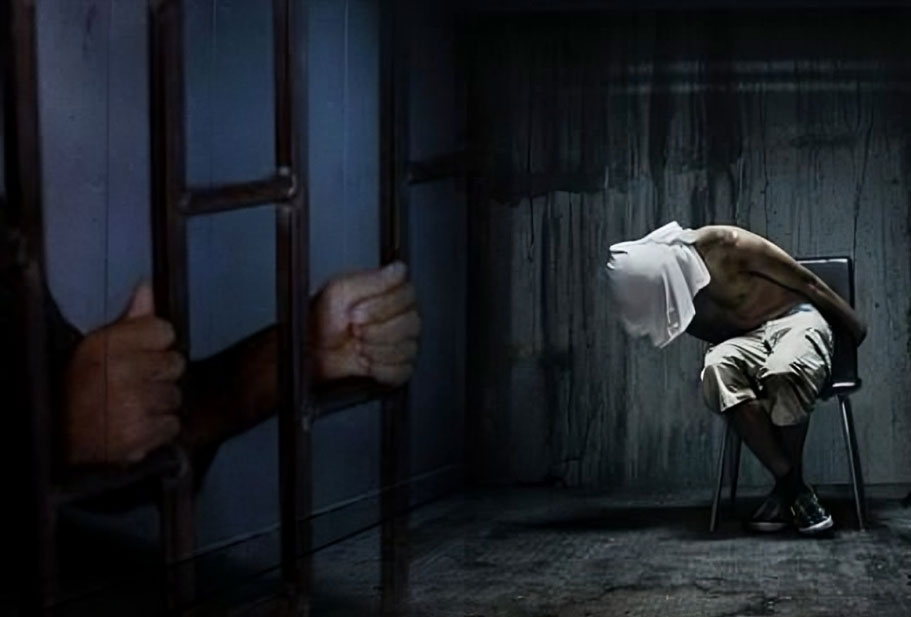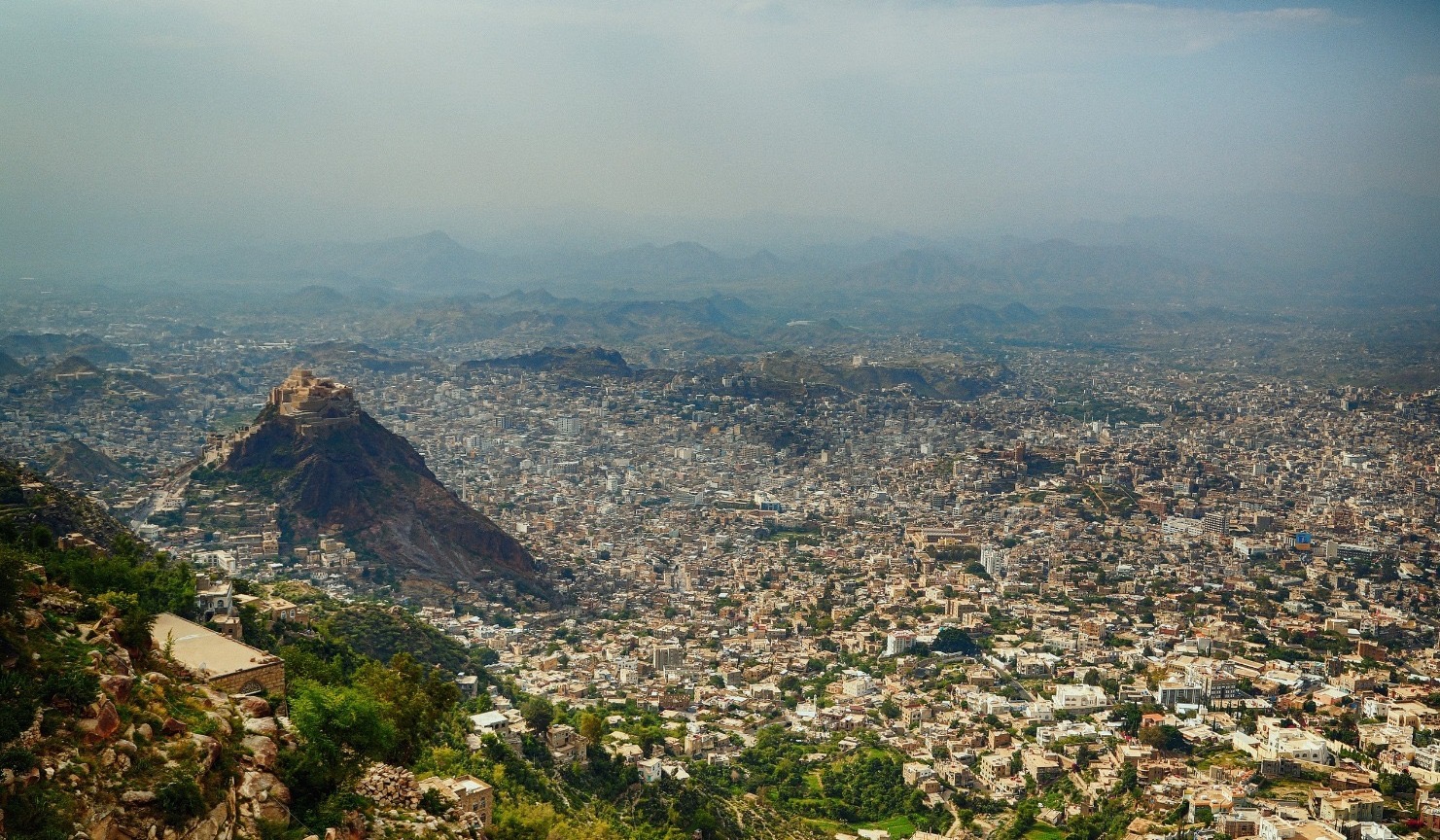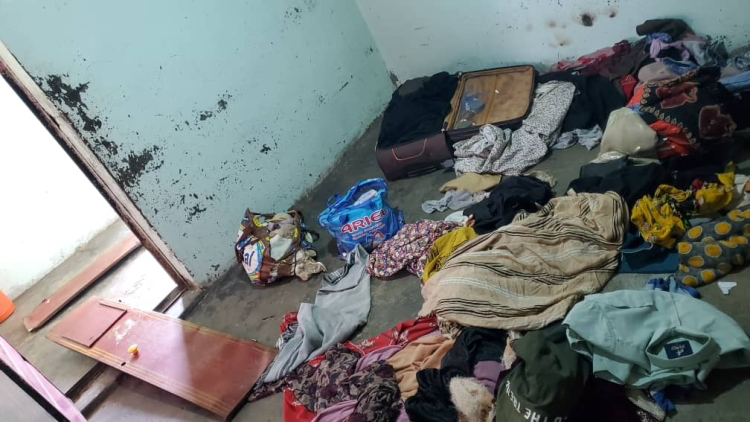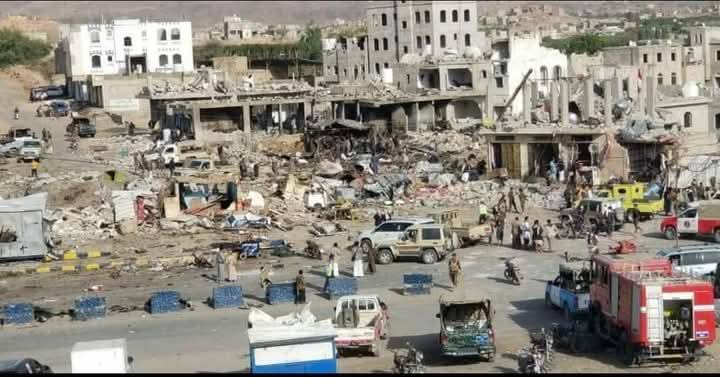
Barran Press
On Saturday, December 14, 2024, the organization "SAM for Rights and Liberties" published a report detailing the harrowing stories of 40 civilians who were detained from roads, workplaces, or homes after terrifying raids. The report confirmed that these individuals were subjected to "severe torture in unknown and known dungeons."
The report, titled "Severe Torture," documented the suffering of detainees in Yemen over the past decade, presenting painful scenes from the lives of torture victims in illegal prisons and detention centers in a narrative style aimed at all audience segments.
The report's name was inspired by "the torture marks on the victims' bodies, inflicted by the jailers, including bodies pierced with sharp objects, paralyzed individuals, detainees unable to carry a kilogram with their hands, others who cannot forget sexual assaults, and a girl who faced attempted rape during interrogation," according to the report.
The 220-page report consists of an introduction and five chapters, detailing the victims' stories in prisons and detention centers, particularly in the infamous Al-Saleh prison in eastern Taiz Governorate and other Houthi prisons.
Regarding the victims' stories, "SAM for Rights and Liberties" stated that they "occurred in cities far from the frontlines, but the detainees were threatened with death to force them to confess to acts they had no connection to and crimes they did not commit."
The report mentioned that some detainees were used as targets for airstrikes, some were deprived of food for days, others had their chests cut open with scalpels, and many were subjected to mock executions by shooting, crushing, or burning.
In its first chapter, "Between Life and Death," the report narrated three painful stories. The first was about a marginalized individual, "Bilal's grandson before his death," named Nashwan Muqbil Saeed Saif, who refused to be recruited by the Houthis, leading to the removal of his fingernails and toenails.
Muqbil was also tortured by being beaten with a wooden stick, having stones placed on his back, having flesh removed from his body, and having his leg pierced with a sharp object. According to the report, Muqbil suffered liver poisoning.
All these effects were examined by SAM's team, which also obtained a medical report detailing the complications on his body.
The report stated that Nashwan Muqbil recounted the details of his ordeal to the monitoring team before his death, after being kidnapped by Houthi militants at a checkpoint in the Al-Houban area, eastern Taiz, and taken to Al-Saleh residential city, which the group turned into their largest prison in the country.
In one of the torture nights in the horrific Al-Saleh prison, as narrated by Nashwan, the Houthis brought a car exhaust pipe heated to extreme temperatures and placed it under his knee while he was in a sitting position.
According to Nashwan, the jailers did not stop there; they bent his head and back over his thigh, placed several stones on his back, and then ordered him to stand. When he couldn't, they added more stones to his back.
He said the Houthis also, during the same torture session, removed flesh from his thighs and legs and then hit him on the head with a hard, sharp object.
The Houthis continued torturing Nashwan for weeks, eventually throwing him into solitary confinement, where he developed liver poisoning and body swelling, including swollen testicles due to beatings, heat, and dirty clothes.
"I was not given any medical treatment or medication despite their knowledge of the torture's complications on my body and organs," he added.
Regarding his release from detention, Nashwan said that after a year and six months, he was taken out of the cell at 6 PM, blindfolded, placed on the back of a truck, and dumped in an area called Shibam in Ibb Governorate.
In another shocking story, a victim recounted the torture he endured at the hands of the Houthis, leaving him paralyzed. Mohammed Khaled Mohammed Al-Haj cannot narrate the details of his torture without breaking down in tears, often asking those present to leave and falling silent.
According to the report, Al-Haj supported his sick mother and cared for his orphaned sisters through his work as a builder. "I was working on a building near the ghee and soap factory in Taiz when Abu Ali Al-Shami came to the site asking for my name. I answered, thinking he wanted to hire me," he said.
Al-Haj was then surrounded by armed men who pointed their weapons at him, arrested him, and took him to Al-Saleh city, a residential area turned into a large detention center by the Houthis.
The report noted that Al-Haj was thrown into a small room where he couldn't sleep due to the stench. On the second day, he received a meal, and then he was given two meals and 75 milliliters of water daily.
Al-Haj testified that the Houthis began torturing him on the fourth day. "When I reached the interrogator, the first thing he asked me was to confess that I was a Daesh member," he said.
"They blindfolded me, tied my hands, hung me up, and started torturing me. I received more than 30 punches and slaps to the face until I fainted, bleeding from my nose," he continued.
"When I fainted, they hit me on the head with a frozen water bottle until I woke up. I begged them to stop the bleeding, but they ignored me. I asked why this was happening to me, and they replied, 'Confess that you are Daesh,'" Al-Haj said.
Al-Haj described another horrific torture method, where his toes were tied individually and pulled forcefully, causing him to faint from the pain and screaming.
He was then moved to an apartment in the detention center with 30 other detainees. "I was subjected to the most brutal forms of torture twice a week until I became paralyzed and couldn't stand on my feet," he added.
SAM concluded in its report that its work aims to break the silence and encourage other victims to speak out and document the violations they endured. The report is based on years of fieldwork and direct interviews with victims and eyewitnesses, including painful testimonies from detainees who died under torture.
The organization noted that most of these violations occurred in Houthi-run prisons, with relatively fewer violations in areas controlled by the internationally recognized government, the Southern Transitional Council, or various military factions.
The report is the first in a series of reports intended to highlight the victims' suffering and push for international efforts to achieve justice. It aims to keep these violations alive in memory, call for accountability for those involved, and seek redress for the innocent victims, promoting human dignity and justice.





